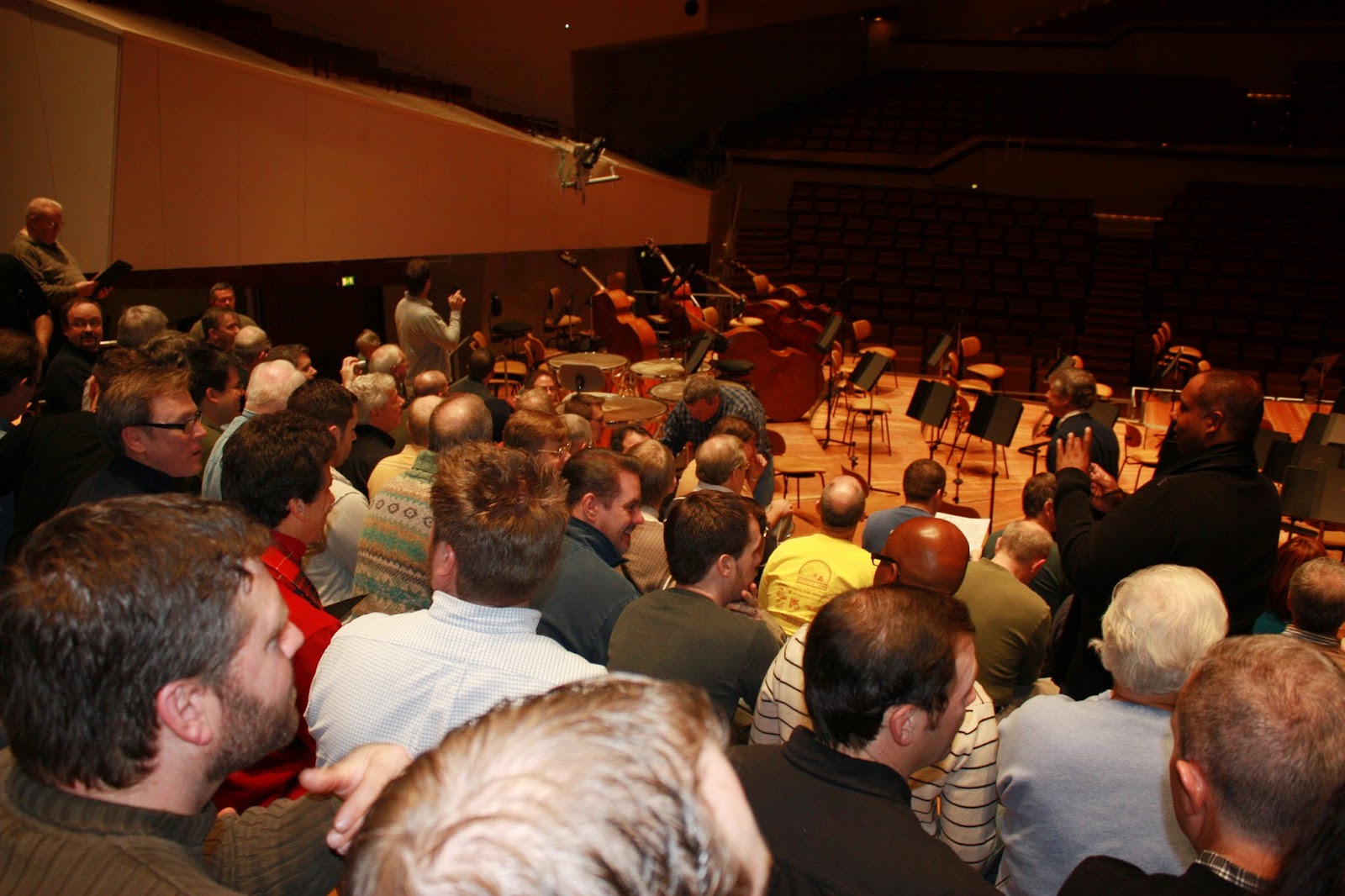For a limited time, you can experience the BPO's Digital Concert Hall free!
We encourage you to participate in BPO's Digital Concert Halls Facebook Survey. As a thank you for filling out the survey, you will receive a voucher -- good through March 2015 -- with a code number, entitling you to a FREE 48-hour ticket to the Digital Concert Hall. You may also enter to win a 12-month Digital Concert Hall ticket after the survey.
The ASO Chorus is deeply honored to be included in the Digital Concert Hall's archive of great Philharmoniker performances: Ein Deutsches Requiem, conducted by Donald Runnicles, featuring Finnish soprano Helena Juntenen and Canadian baritone -- our own 'Dr. Atomic' -- Gerald Finley, and the ASO Chorus
 |
| ASO Chorus take their seats onstage to begin rehearsals for Brahms' Requiem. Berlin Philharmonie, December, 2009 |
I am happy and proud that one of our historic performances lives on through the miracle of live-streaming. Please fill out the survey, and use your voucher to access our 2009 performance of Ein Deutsches Requiem through the Digital Concert Hall archive ... with the help of the latest technology, you can experience it for the first time, or relive it, like I did.
We sound glorious ...